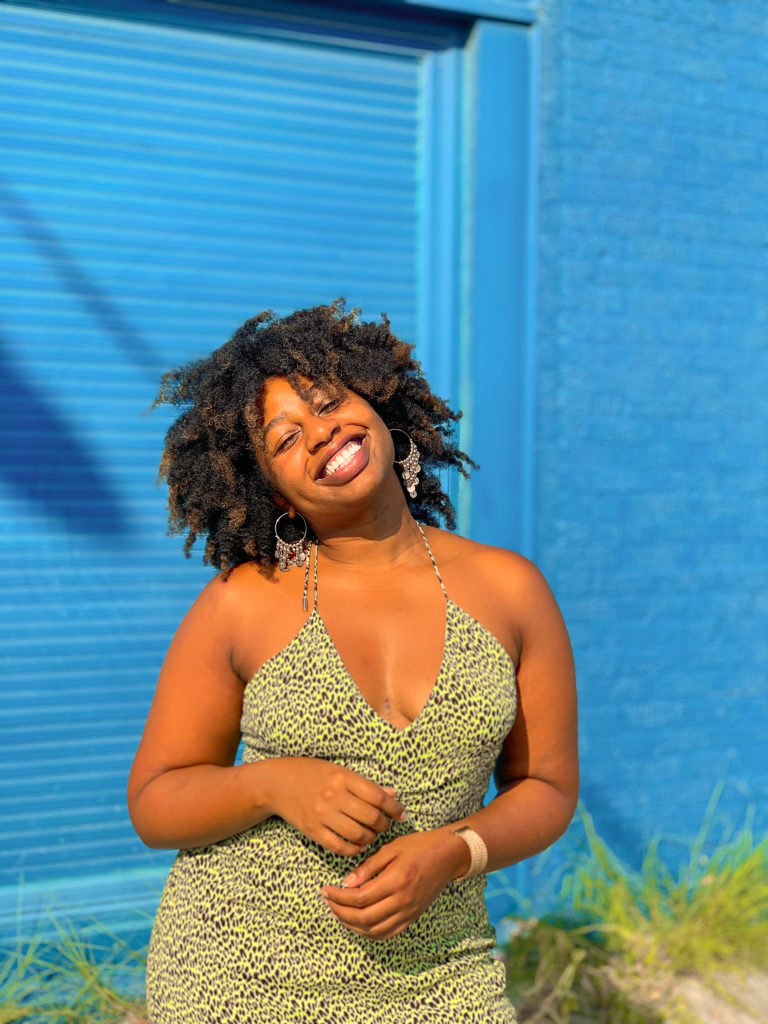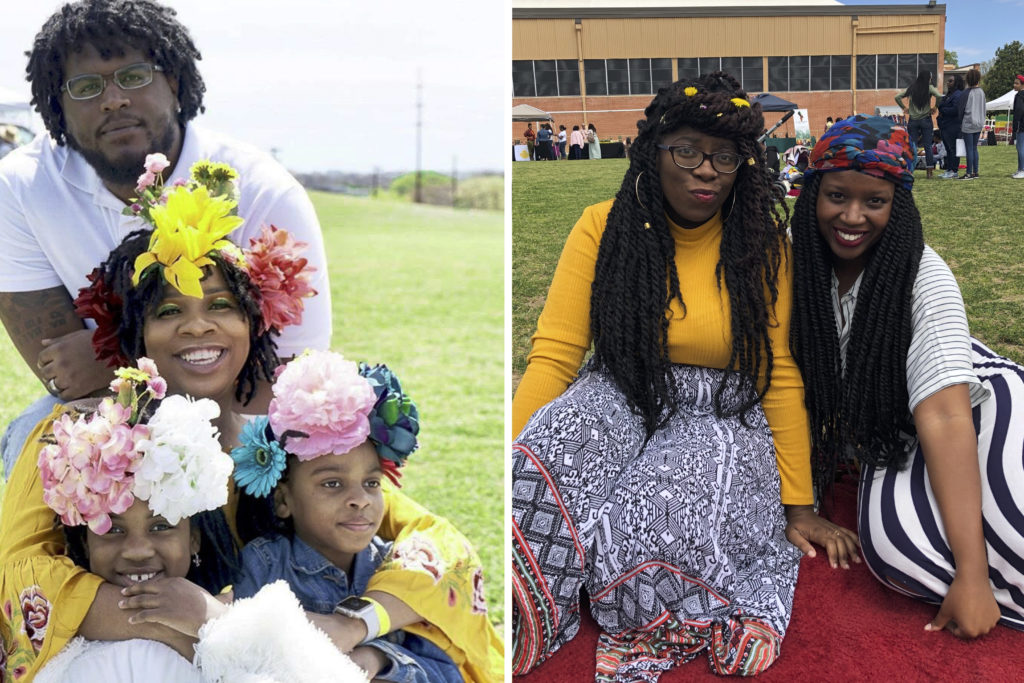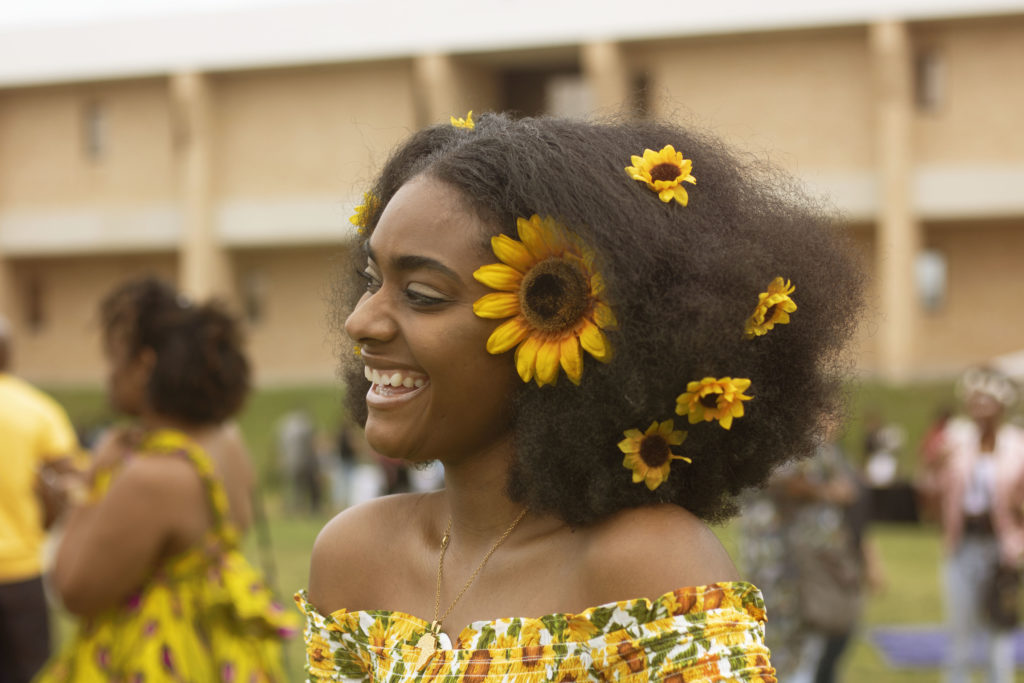Through her blog and annual festival, Coco Bates is opening up the natural-hair community to people of all hair textures and backgrounds.
By Alexis Green, Photos courtesy of Coco Bates, Photo of Kwaniqua Lewis and Shellsy Malveaux by Alexis Green

Coco Bates
Coco Bates’ curls are more than just hair—they’re a representation of her culture, identity and self-love journey.
“I feel like I’m making my ancestors proud by being able to embrace my God-given beauty. It means a lot to me,” Bates says.
Her journey to embrace her curls started a decade ago and is still an ongoing process. Looking to the natural-hair community, Bates rarely saw people with coils as kinky as her own. The idea of “good hair” was often limited to those with looser curls, leaving women with more unique textures feeling unseen and confused on their place in the community.
“In terms of the natural-hair community, that’s still segregation,” Bates says.
With this dissatisfaction, and a disappointment in the lack of cultural events at South by Southwest, Bates planned a curly-girl picnic for black women to socialize over shared experiences. What was originally intended to be a gathering of about 30 women attracted more than 700 people.
With only 90 days to plan, Bates launched the first Blossom and Sol Natural Hair Festival in 2018. Through the annual event and a blog by the same name, Bates is inviting people often left out of the curly-hair conversation to the forefront.
Outside of the natural-hair community, hair discrimination is a common occurrence nationally. After a teenager in Texas was suspended this February for his dreadlocks, the Texas Legislative Black Caucus announced plans for introducing a CROWN bill in the 2021 legislative session. An acronym for Creating a Respectful and Open World for Natural Hair, the CROWN Act is a national movement to fight against hair discrimination. In six states, one county and one city, legislation has already passed.
For Kwaniqua Lewis and Shellsy Malveaux, the Blossom and Sol festival offered them community and space free from disapproving stares.
“The best thing about Blossom and Sol is it’s about being yourself, but more courageous, vibrant and energetic, and having this space to do so,” Lewis says.

A family at Blossom & Soul Kwaniqua Lewis and Shellsy Malveaux
At her events, Bates creates space for people to share their stories and be vulnerable with others they feel a cultural connection with.
“We have to go through so many different things when it comes to our hair care and our lifestyle,” Malveaux says. “I can relate to everyone. I’ve always felt alone, but I had [people at the festival] I could open up to and be myself.”
Similar to Bates, Malveaux’s views her hair as part of her identity. Cutting off her relaxed hair symbolized more than just a new style; it was a new life.
“It was more of a spiritual journey because I was just going through depression and a lot of personal issues,” Malveaux says. “We tie in our self-confidence and our self-worth within our hair. I wanted to cut that stigmatism off.”
Embracing her natural texture gave her the courage to start living boldly without fear of others’ opinions.
“You have to do things for yourself, or else you are just going live in this world of fear,” Malveaux says. “I started to do what was right for me and what I wanted to do.”
Lewis shares this sentiment, envisioning a future where younger girls can grow up feeling inspired to love their hair.
When Lewis was 5, her hair was thick and curly and she felt out of place. After seeing only women with straight hair, she used her mom’s perming products hoping for the straight tresses displayed in the media and by peers.
Lewis hopes that, with Bates’ work, no other child has to grow up with the loneliness she felt.
“[Bates] is providing is a future [where people are] able to step inside the identity of their natural hair boldly and courageously, and not feel the need to mold to something,” Lewis says.
Without the encouragement and love of a best friend, Lewis never would have gone natural.
The constant affirmations from friends and family of, “You look beautiful,” and, “I love your hair,” kept her from ever looking back.
Despite the festival getting canceled this year, Bates’ desire remains the same: to establish communities like the one Malveaux and Lewis have found.
The name Blossom and Sol is the embodiment of sisterhood; Bates compares finding your circle to caring for a flower.
“You have to be responsible for who you allow to be around you. If they are not pouring life into you, then you have no business being with that person,” she says.
For Bates, breaking down stigmas and connecting people allows individuals to bloom and live unapologetically.
“It’s important for us to know [tighter hair textures are] just as beautiful as these looser curls,” she says. “It’s all about getting women comfortable with the texture that they have and rocking what they have.”


